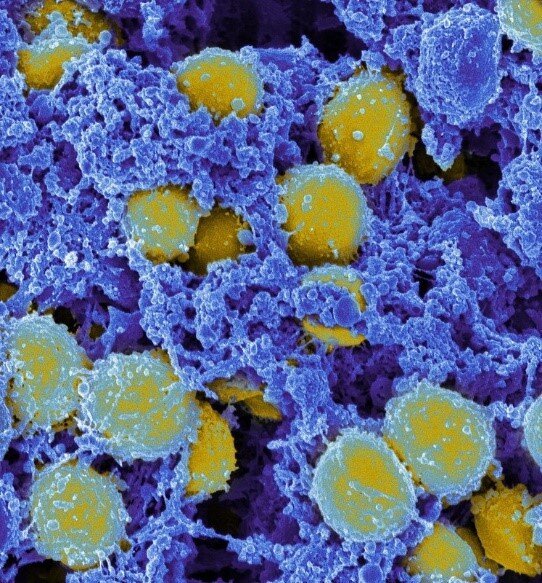Armata Pharmaceuticals, in collaboration with The Lundquist Institute for Biomedical Innovation, recently presented the groundbreaking findings from the Phase IIa diSArm study at IDWeek 2025 in Atlanta, Georgia. Dr. Loren G. Miller, a key investigator in the study, highlighted the significant results of the trial, which focused on the efficacy of intravenous bacteriophage therapy in treating complicated Staphylococcus aureus bacteremia (SAB).
Bacteriophages, virus-like particles that infect bacteria, offer a novel approach to combating antibiotic-resistant infections. The study evaluated AP-SA02, a high-purity, pathogen-specific bacteriophage cocktail developed by Armata Pharmaceuticals, in combination with standard antibiotic therapy. The results showed that AP-SA02 was safe and demonstrated promising efficacy in patients with S. aureus bacteremia, a challenging bacterial infection to treat.
Dr. Miller emphasized the importance of the study’s findings, stating that the results confirm the efficacy of intravenous phage therapy for S. aureus bacteremia. He noted that high-purity, phage-based therapeutics like AP-SA02 could potentially become a new standard of care for patients with this life-threatening condition.
The study, supported by the U.S. Department of Defense and Innoviva, Armata’s major shareholder, enrolled 42 patients and randomized them to receive either AP-SA02 or a placebo in addition to antibiotic therapy. The clinical response rates in the AP-SA02 group were significantly higher than those in the placebo group, with no instances of non-response or relapse in the AP-SA02 group.
The defined phage variants present in AP-SA02 Drug Product offer an advantage by providing a rapid, strain-specific response to each patient’s S. aureus isolate. These variants can adapt and evolve to effectively target specific bacterial strains, enhancing the therapeutic efficacy of the treatment.
The study’s conclusions support the advancement of AP-SA02 into a pivotal Phase III trial, scheduled to commence in 2026 pending FDA review. The results of the Phase IIa diSArm study represent a significant step towards addressing the global challenge of antimicrobial resistance and providing innovative therapies for severe bacterial infections.
In conclusion, the findings from the diSArm study underscore the potential of bacteriophage therapy as a promising treatment option for complicated S. aureus bacteremia. The collaborative efforts of Armata Pharmaceuticals, The Lundquist Institute, and the clinical team have paved the way for advancing phage-based therapeutics towards addressing critical unmet medical needs in infectious diseases.


